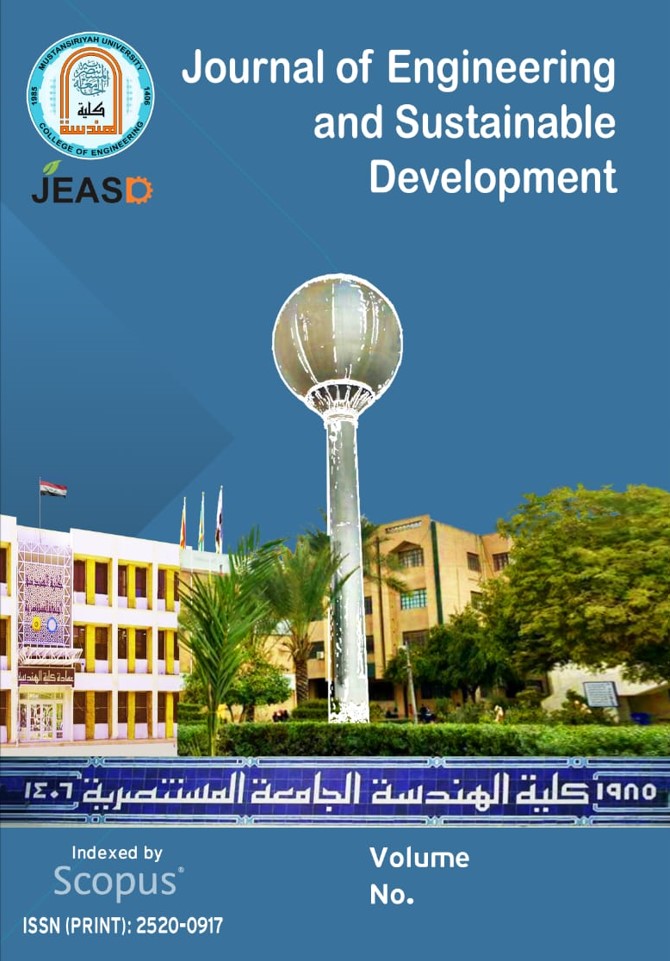Abstract
Incremental sheet forming (ISF) is a novel technology to takes part in solving a lot of problems from classical sheet-forming operations in terms of more flexibility, cheap, low production time, convenience for small batches, and particularly rapid prototype production. This paper aims to provide enough information for the understanding of the incremental forming process, especially focusing on numerical two-point incremental sheet forming mechanism and multi-stages incremental forming. The influence of some process parameters such as incremental step size and forming tool radius, on thickness distribution across the wall of the part is studied, as well as, studying the thickness distribution and strain analyses for three stages in multi-stages incremental forming during forming the product with vertical angle.2-D model of cone-shaped part with right forming angle has been developed in the three stages from the sheet with the thickness (1mm) of the aluminum alloy (AA1070). A commercially available finite element program code (ANSYS 11), is used to carry out the numerical simulation of the multistage incremental sheet forming. The results show that, when considering multi-stage incremental sheet forming, the task is even more difficult because the strain and thickness distribution resulting from the first stage will influence the subsequent results. Decreasing the forming tool radius will increase the thinning of the wall product due to excessive stretch will occur, while the incremental step size is no significant effect on the numerical results (thickness, strain) distribution of the product...
Keywords
Finite element Method
multi-stage forming
process limits
two point incremental forming
